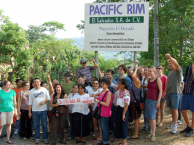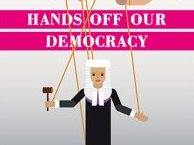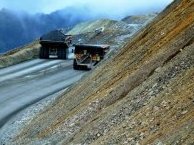
La majorité des différends investisseur-Etat (ISDS en anglais) touche le domaine de l’environnement. Les multinationales utilisent de plus en plus l’ISDS inclus dans les accords de commerce et d’investissement pour remettre en cause les politiques environnementales. Fin juin 2019, 41% des arbitrages effectués au CIRDI concernaient les domaines de l’énergie et des ressources naturelles.
Parmi les cas les plus connus :
• Lone Pine Resources (US) c. Canada : Lone Pine a contesté le moratoire sur la fracturation hydraulique, utilisé pour l’exploration des gaz de schistes, prononcé par le Québec. La province canadienne avait déclaré ce moratoire en 2011. Elle voulait en effet mener une étude sur l’impact environnemental de cette méthode d’extraction souvent accusée de déverser des substances chimiques et des gaz dans l’air et les nappes phréatiques. Litige en cours (ALENA invoqué).
• Bilcon (US) c. Canada : la multinationale états-unienne a contesté les exigences environnementales canadiennes affectant son projet d’ouverture d’une carrière de basalte et d’un terminal maritime en Nouvelle-Ecosse. En 2015, un tribunal d’arbitrage décide que la volonté du gouvernement faisait obstacle aux attentes de l’investisseur. Bilcon est donc sorti vainqueur et a reçu 7 millions de dollars US de compensation, plus les intérêts (ALENA invoqué).
• Vattenfall (Suède) c. Allemagne : la multinationale suédoise de l’énergie avait reçu en 2007 un permis temporaire pour la construction d’une centrale électrique à charbon près de la ville de Hambourg. Afin de protéger l’Elbe des eaux usées provenant de la centrale, des restrictions environnementales avaient été ajoutées avant l’autorisation finale de la construction. En conséquence, l’investisseur a initié un recours à l’arbitrage, affirmant que le projet n’était plus viable. Le litige a été finalement réglé à l’amiable en 2011. La ville de Hambourg a dû accepter d’abaisser les normes environnementales (ECT invoqué).
Photo : Kris Krug / CC BY-NC-ND 2.0
(mars 2020)











